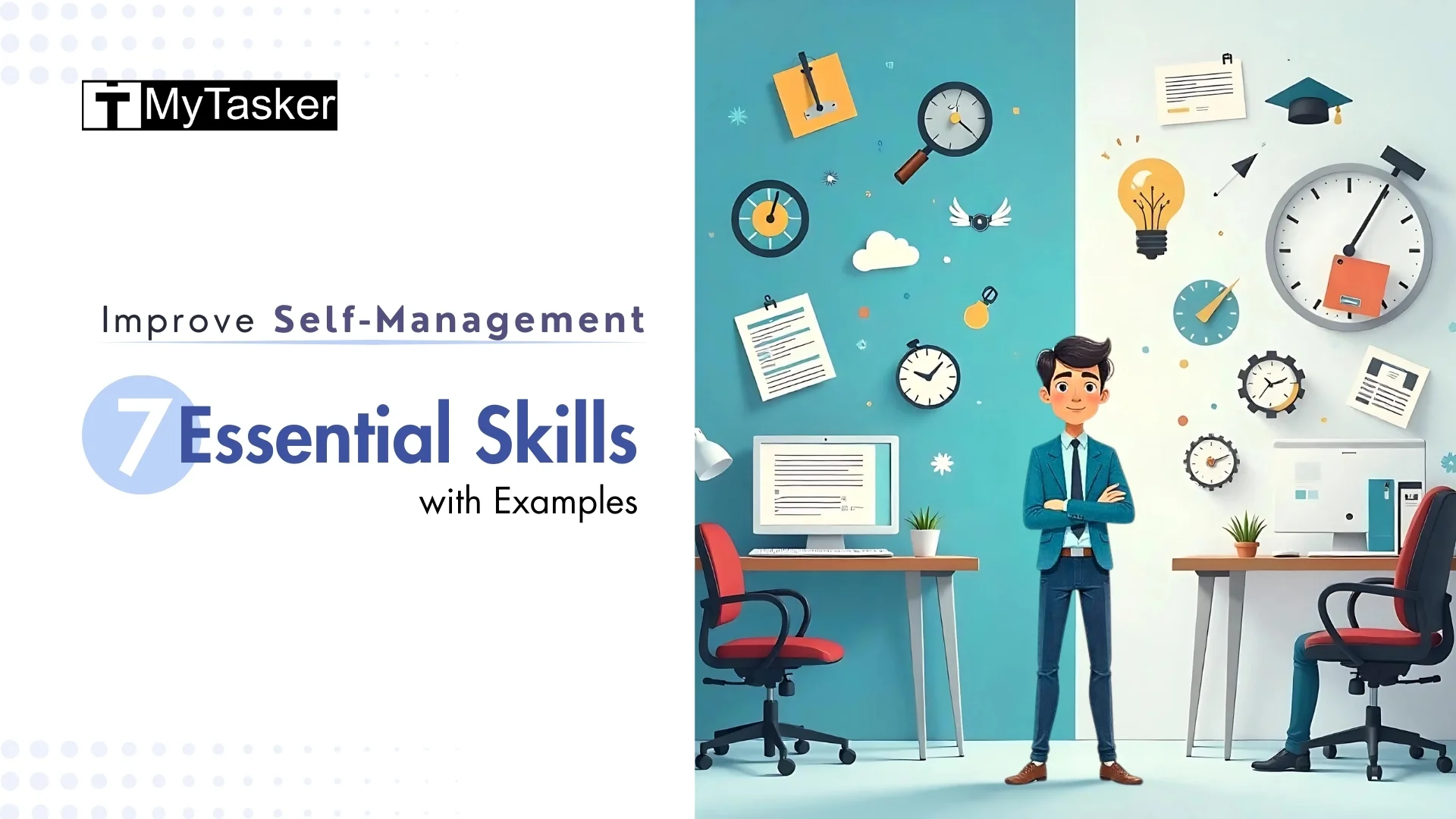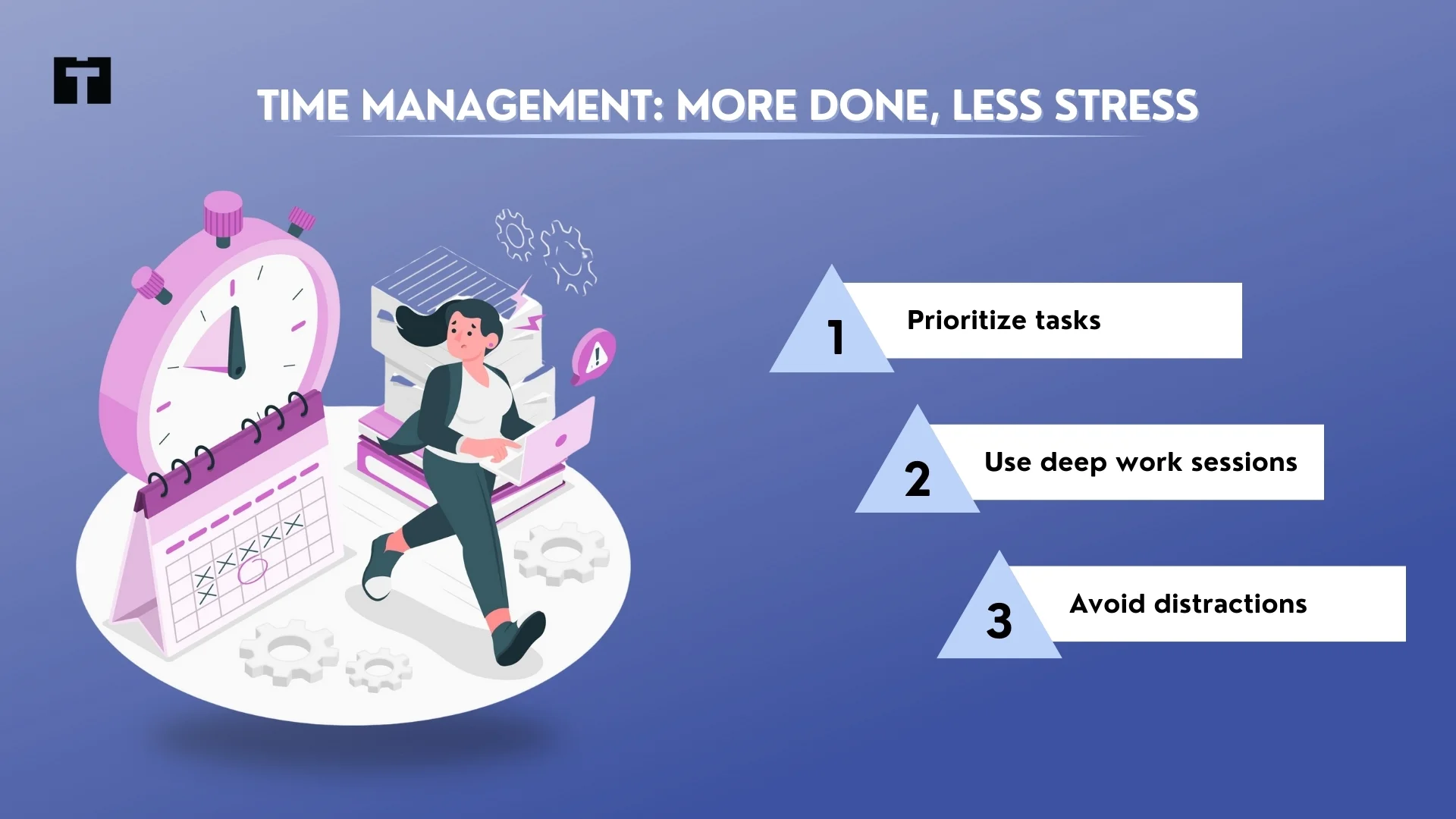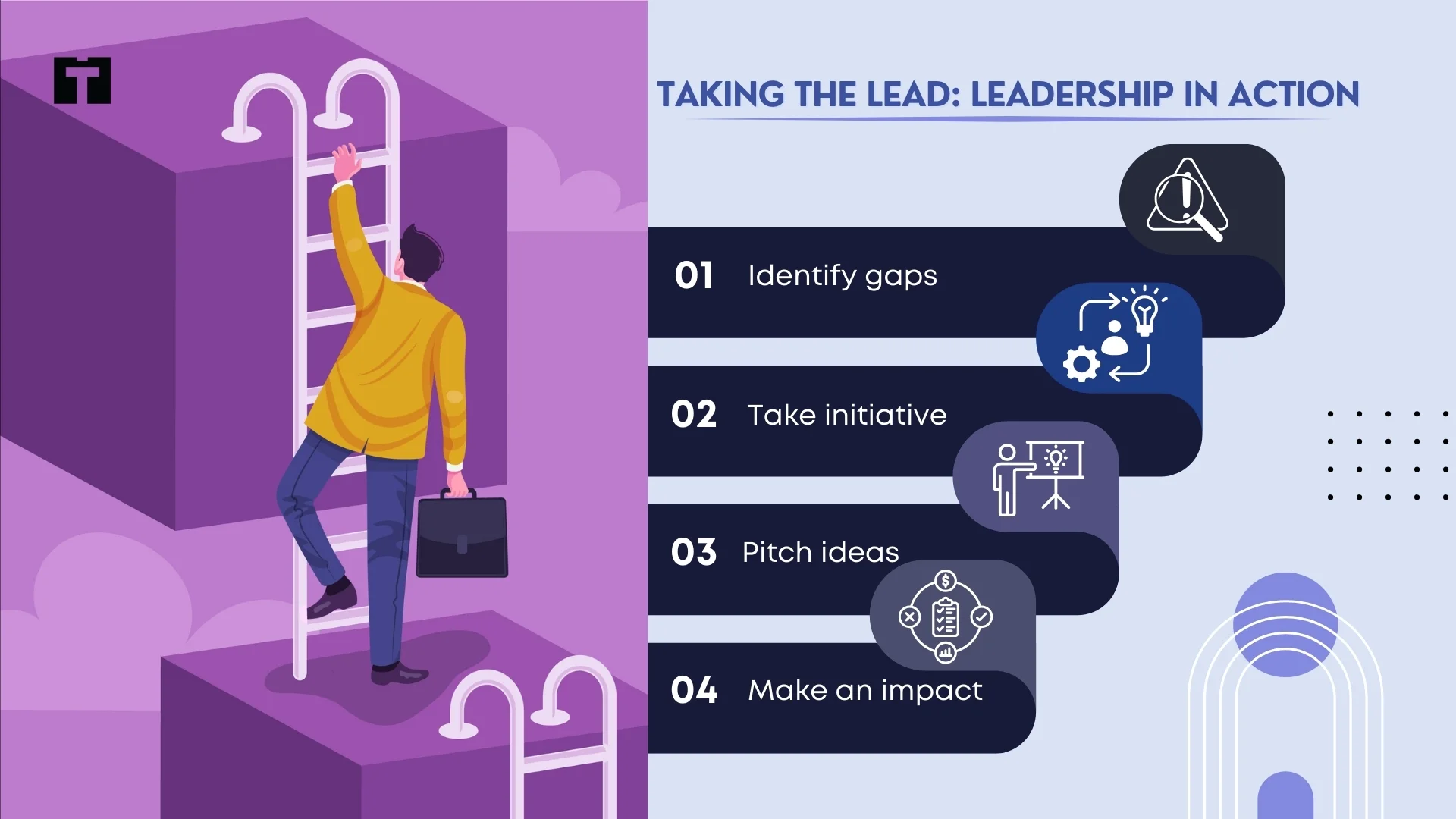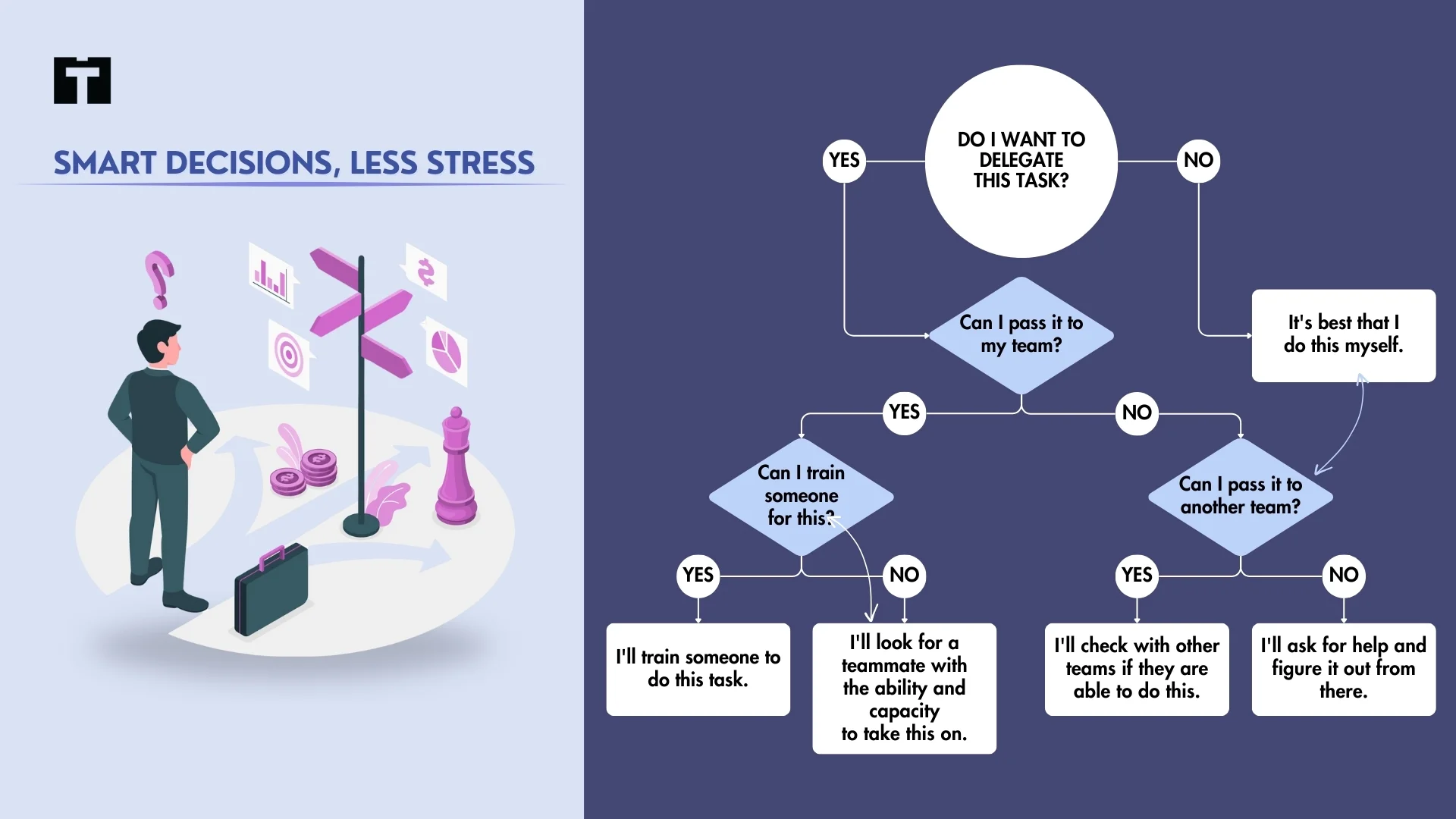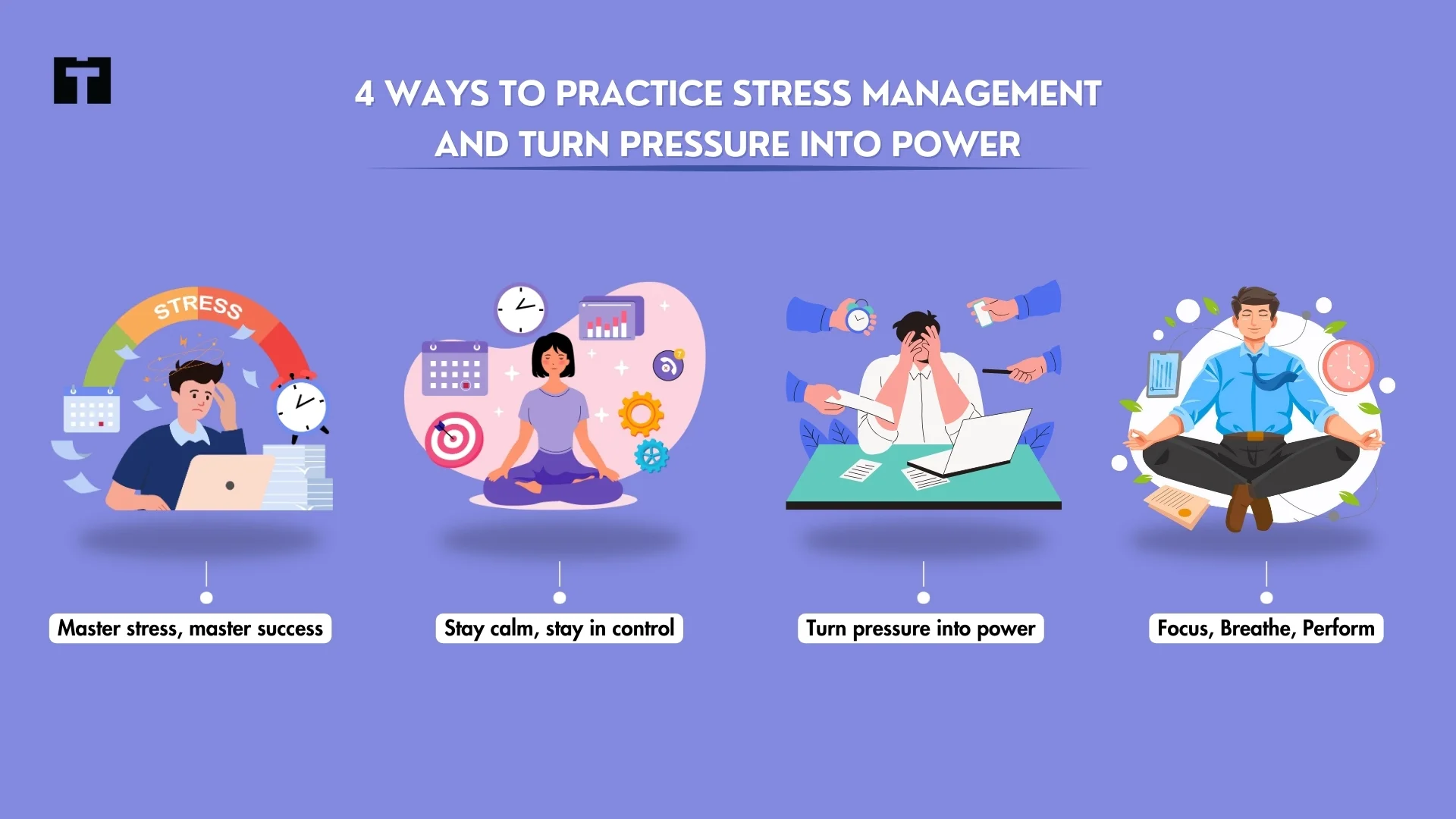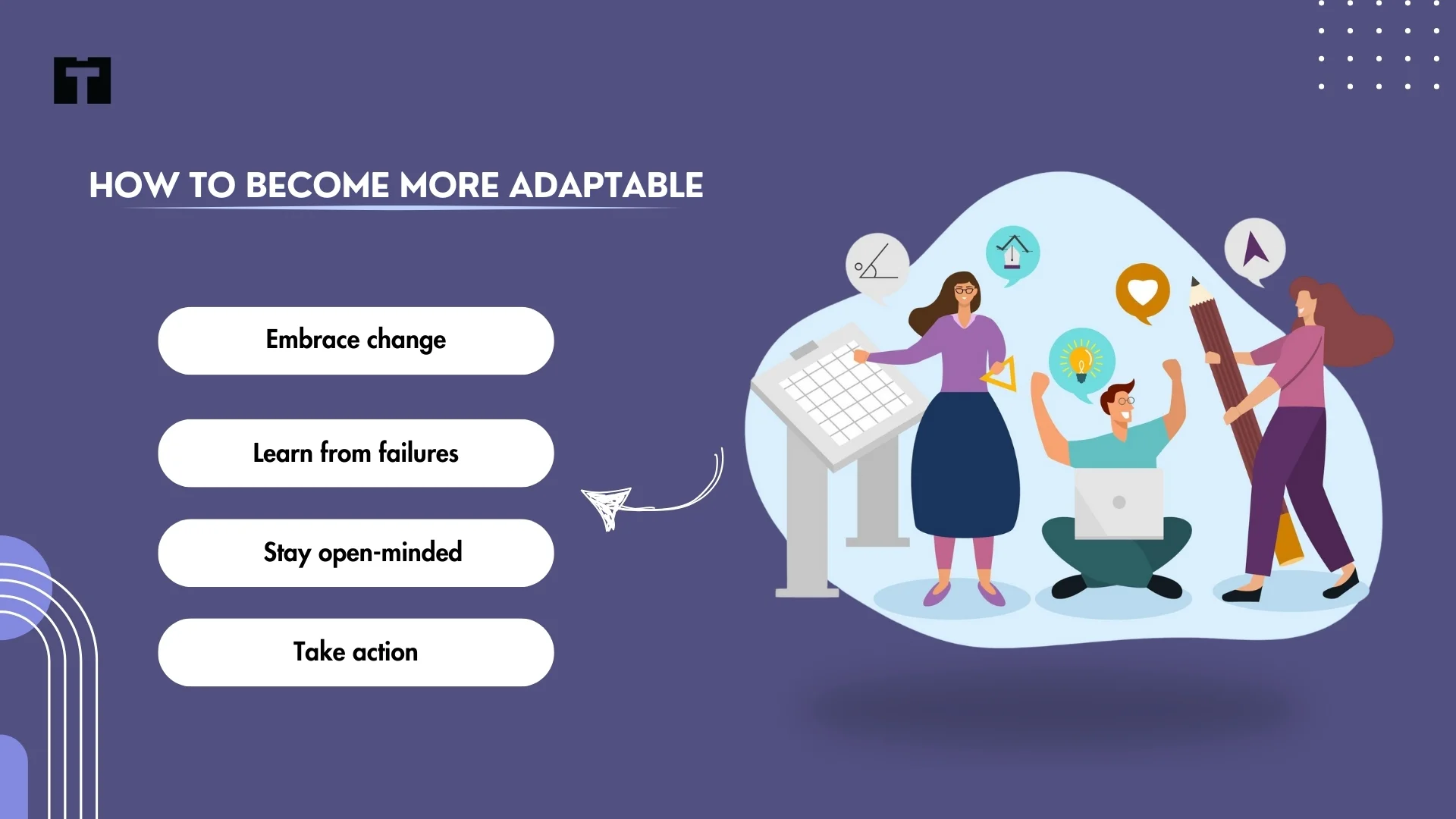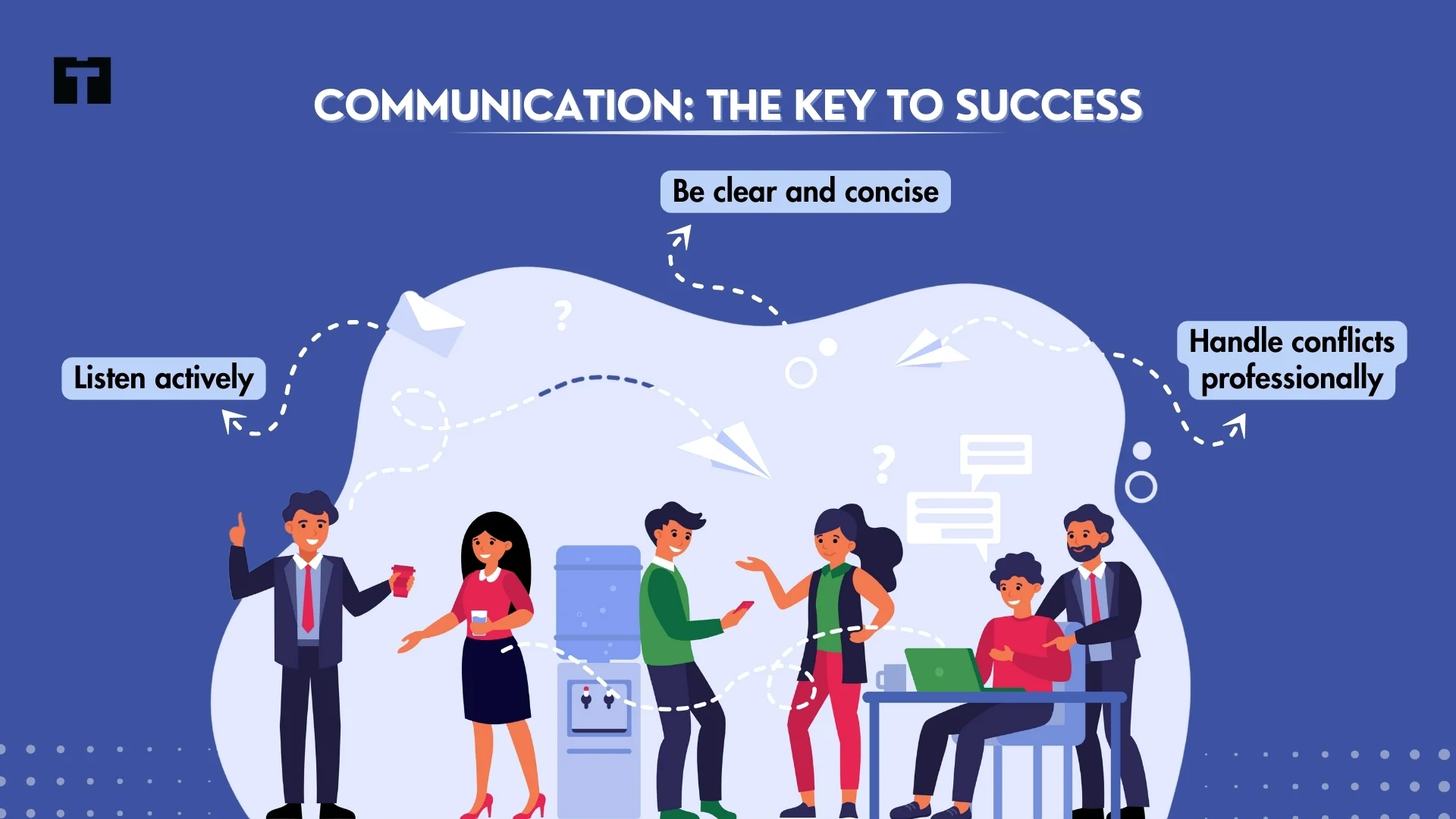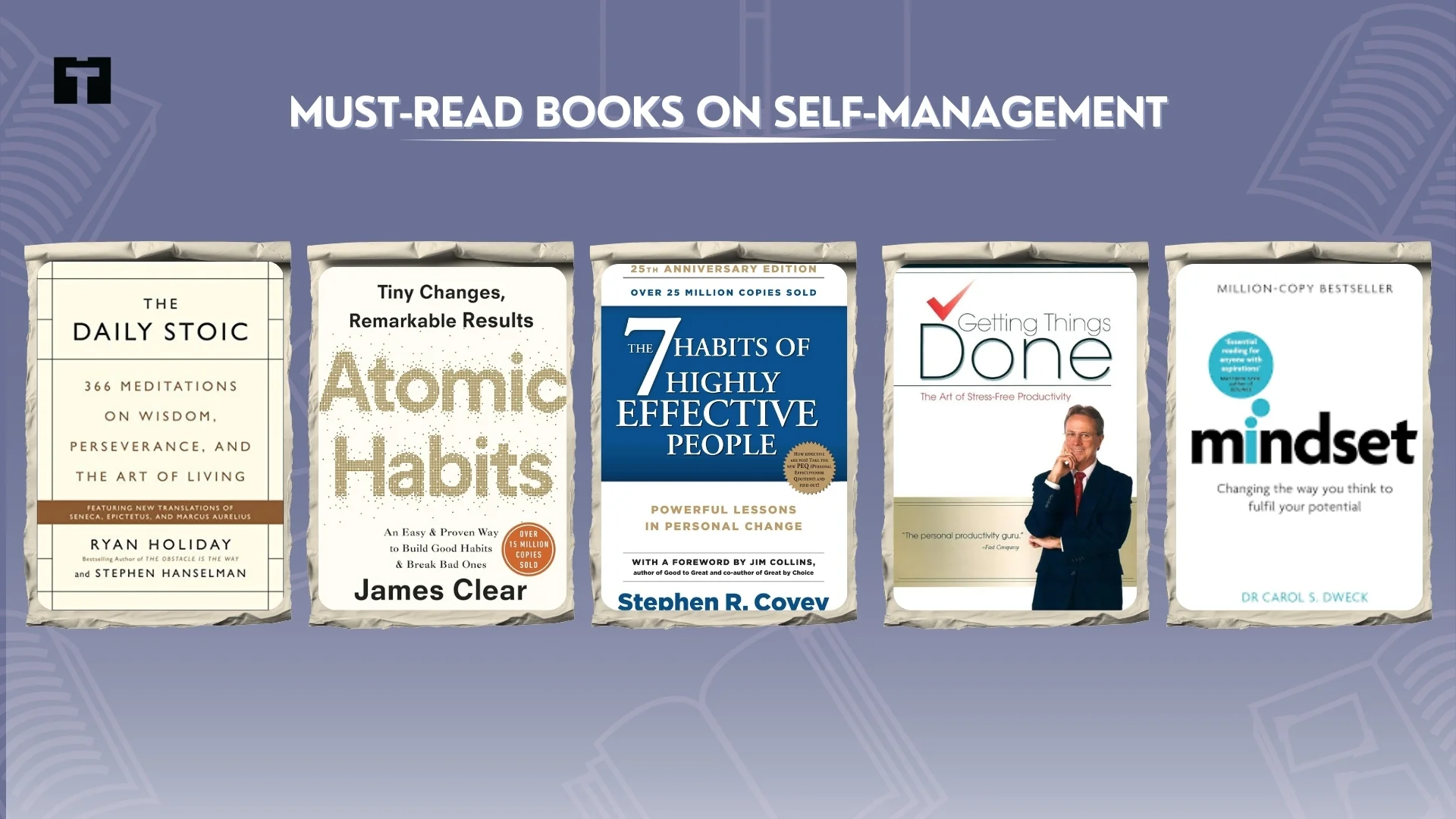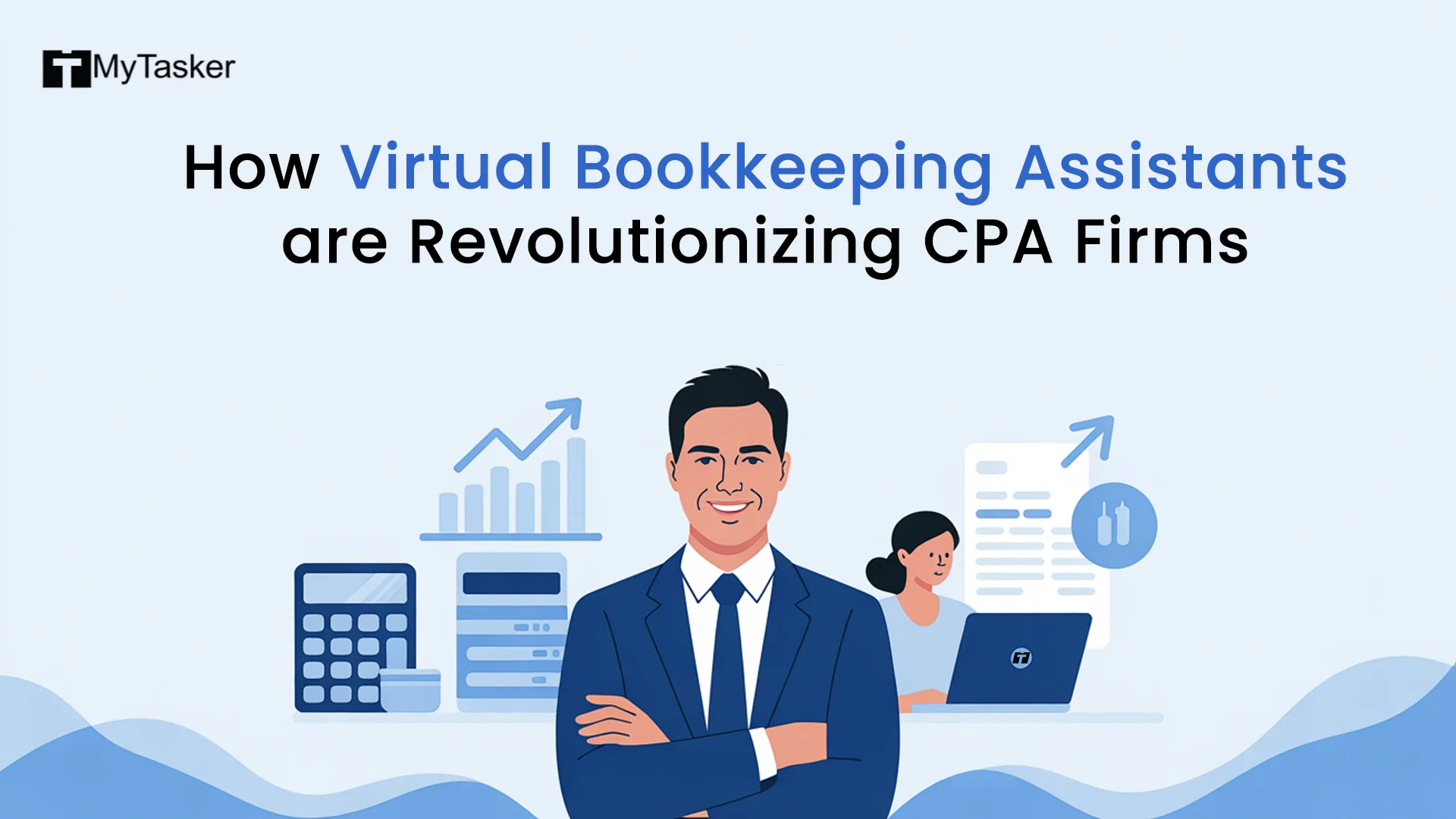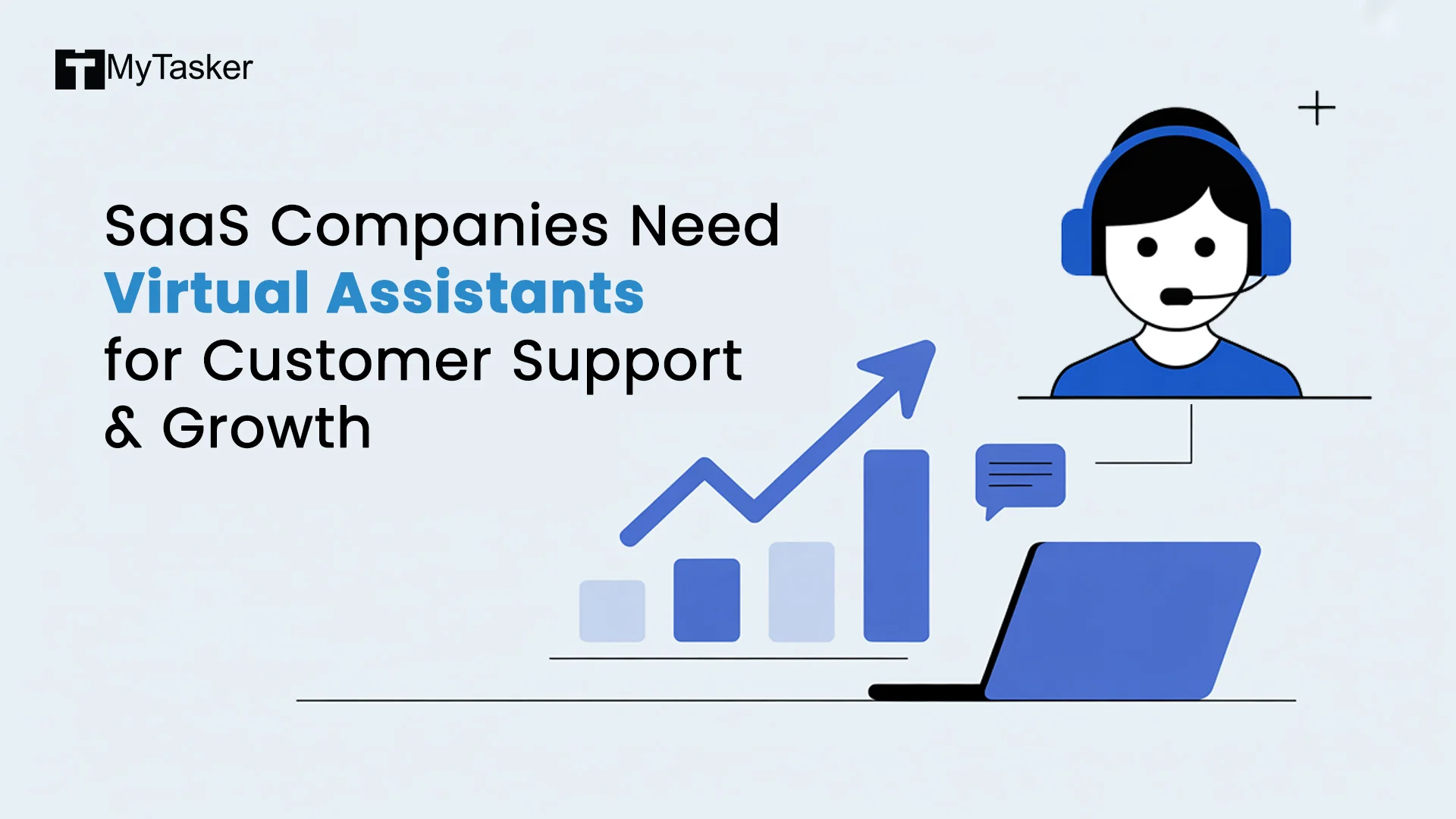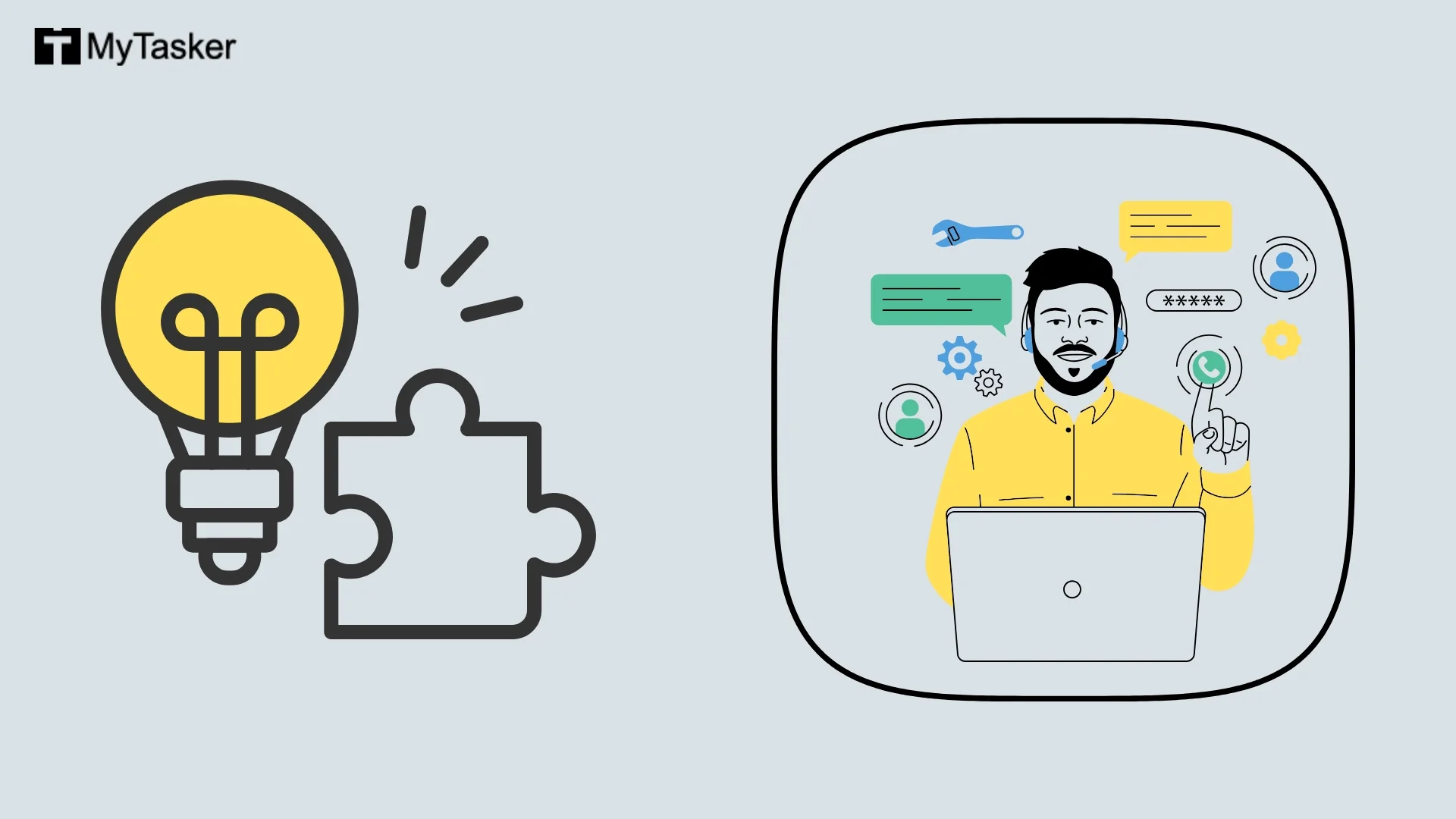Self-management is the ability to be mindful and reflective of your thoughts, emotions, and actions, and to respond with clarity in moments of chaos.
This isn’t about strict routines or forcing yourself to be productive. It’s about tuning in. Taking the lead without the burnout.
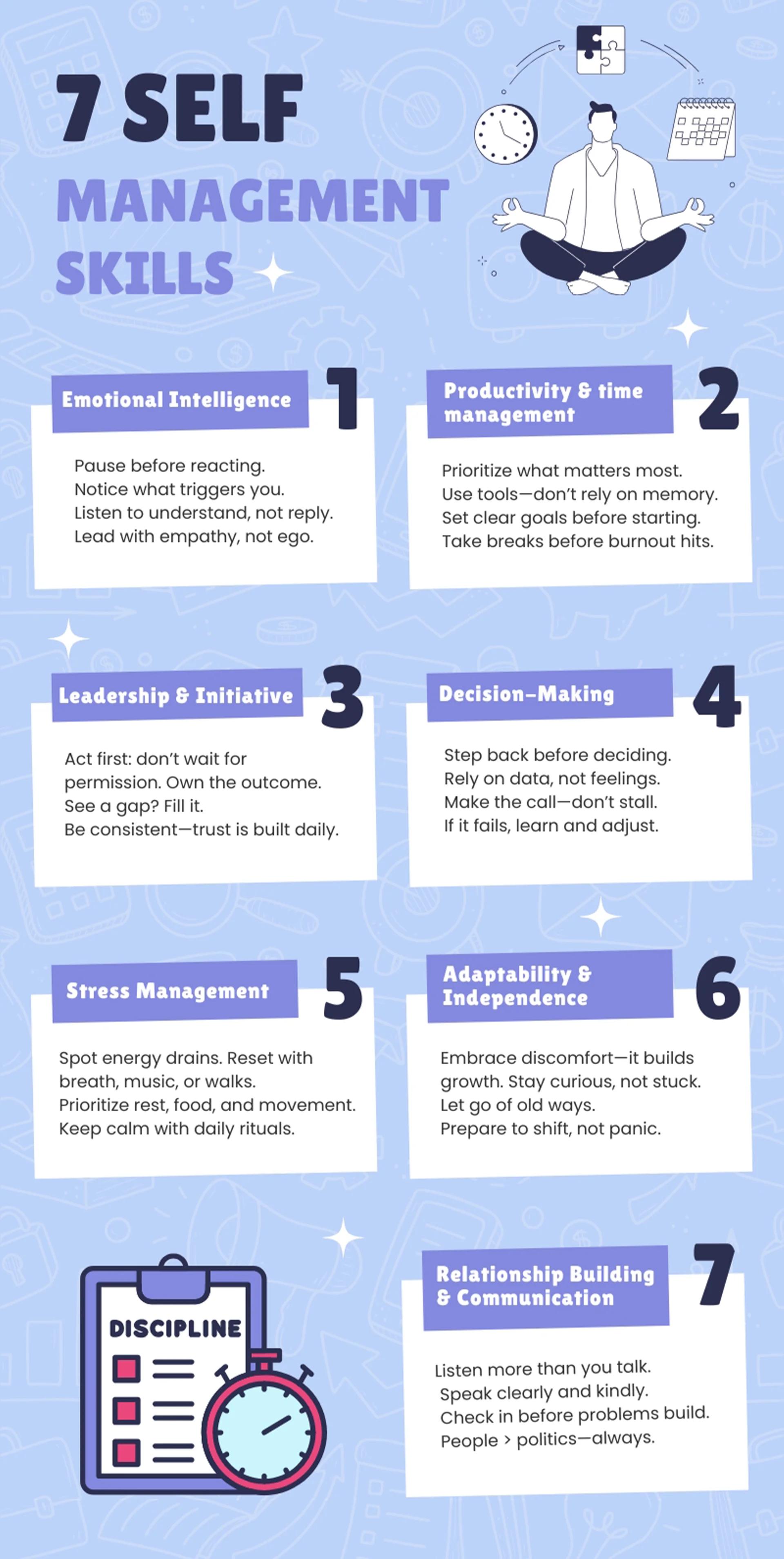
What is Self Management?
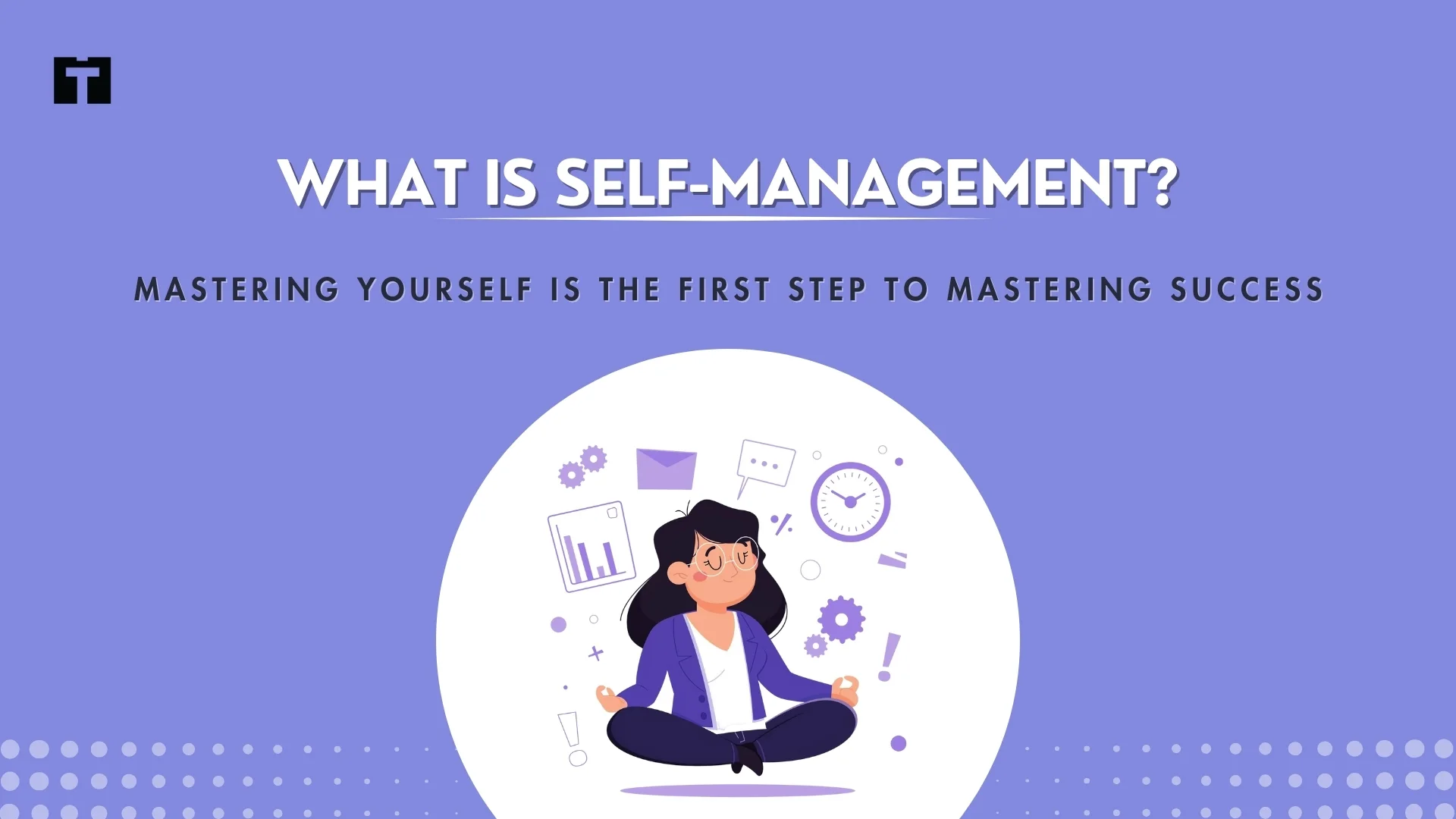
It’s a practice which enables you to respond not react. Like muscle memory, it starts with conscious effort — but over time, it becomes second nature.
This isn’t about pushing yourself to grind harder. It’s about creating a rhythm where responses flow naturally.
When you truly understand your thoughts and emotions, you don’t have to wrestle with them — you guide them
And the biggest benefit of self management is clarity. You see things for what they are. You stay grounded. And you make decisions from a place of confidence, not chaos.
You can become more self-aware and improve your emotional intelligence and overall well-being with effective self-management.
Why Self-Management Is Your Secret Weapon?
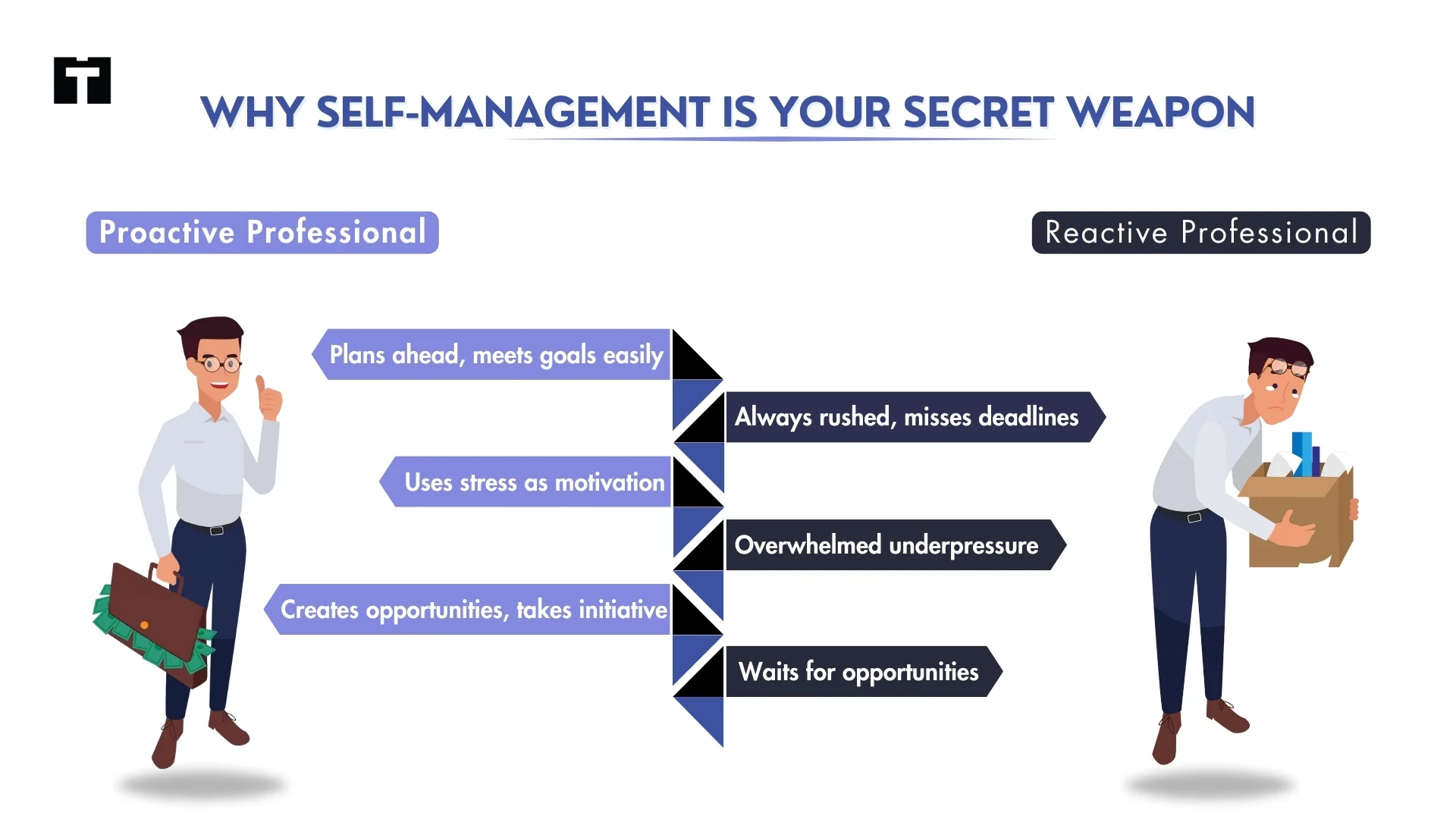
Success whether in life, business, or relationships starts with you.
When you manage yourself well: You stay cool under pressure and make sharper decisions. You get more done in less time—without the burnout. You move instead of overthinking or waiting for the “perfect moment.”
You build momentum and create success that sticks.
You stop reacting to everything life throws at you. And start leading—with clarity, intention, and on your terms.
What are the self-management skills?
The definition of self-management may vary, but the core skills we will cover soon essentially help us control our time, emotions, and actions mindfully. Key skills include emotional intelligence, productivity & time management, leadership, decision making, goal setting, stress management, and being adaptable—all of which contribute to our personal and professional growth.
By mastering these self-management skills, we can stay motivated, make informed decisions, and tackle challenges with determination and resilience. The importance of self-management can be felt in every aspect of life.
Advantages of Self Management
- Increased Productivity: Channel energy into action, set precise priorities, and accomplish more in less time.
- Better Decision-Making: Make quick, high-impact decisions with self-discipline and critical thinking.
- Greater Accountability: Take full responsibility for your actions and outcomes—no excuses.
- Improved Stress Management: Master emotions, stay calm under pressure, and turn stress into an asset.
- Enhanced Adaptability: Embrace change, pivot quickly, and turn setbacks into opportunities.
- Stronger Work-Life Balance: Structure your time for focused work and intentional rest.
- Boosted Self-Motivation: Stay driven and productive, even without external oversight.
- Better Relationships: Strengthen communication and emotional intelligence, enhancing personal and professional connections.
Self-management isn't just a skill—it’s a competitive advantage. Play the game right, and you win on your terms.
Emotional Intelligence — Stay Cool, Stay Sharp
What it means:
Understand your emotions. Read the room. Respond with intention, not impulse.
Cheat Sheet:
- Pause before reacting
- Notice emotional triggers
- Listen actively
- Lead with empathy
Example: A CEO stays calm in a crisis, leads with clarity, and keeps the team focused—turning pressure into progress.
Productivity & Time Management — Work Smarter, Not Harder
What it means:
It’s not about doing more—it’s about doing what matters most.
Cheat Sheet:
- List your tasks and prioritize
- Use tools to organize and plan
- Set clear, actionable goals
- Schedule breaks and protect your focus
Example: A freelancer uses deep-focus sprints to finish client work faster—no burnout, just balance.
Leadership & Initiative — Step Up & Stand Out
What it means:
Leadership starts with you. Take action before you're ready.
Cheat Sheet:
- Lead by example
- Take ownership
- Look for gaps—and fill them
- Build trust through consistency
Example: A marketing exec pitches a bold idea, fills a gap, and earns a promotion—by stepping up, not waiting.
Decision-Making — Clarity Over Chaos
What it means:
Strong decisions create strong momentum.
Cheat Sheet:
- Zoom out and assess the big picture
- Trust your research, not just emotion
- Make the call—don’t overthink
- Learn and move on if it doesn’t go as planned
Example: An investor avoids a bad deal by digging into the data—turning hesitation into a smart call.
Stress Management — Turn Pressure Into Power
What it means:
Stress is energy—use it or let it use you.
Cheat Sheet:
- Identify what’s draining you
- Build a stress relief toolkit (walks, music, breathwork)
- Sleep, fuel, and move your body
- Create calm daily rituals
Example: A surgeon stays sharp in high-stakes moments thanks to mindfulness and breath control.
Adaptability & Independence — Pivot Like a Pro
What it means:
Change isn’t the problem—resistance is.
Cheat Sheet:
- Get comfortable being uncomfortable
- Stay curious, keep learning
- Don’t cling to old ways
- Prepare to shift, not panic
Example: A startup founder pivots quickly when the market shifts—and turns failure into fuel for growth.
Relationship Building & Communication — People Matter
What it means:
Success isn’t a solo mission. It’s built on connection.
Cheat Sheet:
- Listen more than you talk
- Be direct, clear, and kind
- Check in often
- Value people over politics
Example: A manager resolves a team conflict by listening, mediating, and creating a win-win solution—strengthening the team, not splitting it.
Best Self-Management Technique Software: Tools That Truly Support You
No matter how determined you are, if you don’t track it, you’re gonna miss, forget and eventually fail and then again re-start and it can be a cycle which is not unhealthy, at least, you get up each time. However, as far as efficacy is concerned, the moment you include software to it, it becomes more efficient.
Some software are super helpful like Todoist which is a great to-do list app to bring clarity and calmness all day long. I personally love it. Another tool that I find awesome is Motion. It’s your AI-powered assistant that schedules your tasks and meetings that results in optimized or more productivity.
Another one, especially if you work in a group, it’s Trello, a visual collaboration tool that organizes your various projects or tasks into boards. Many of our clients use it, and it’s super effective. There is another tool of that same stature and is in equal use, and that is, Asana.
If you want a software for all-in-one workspace for notes, tasks, databases, and more, Notion can be your choice. It offers you a huge scope of customizations to fit it to your needs.
If you want a tool for time tracking and analysis, you can go for Monitask. It helps you track time spent on each task.
At times, what we want the most for self management is focus. Forest is a gift.
I like the concept it uses to let you be focused. Whenever you want to stay focused, you plant a tree. The tree you plant grows while you focus on your work. And when you leave the app halfway, the plant dies. So you have two choices: either kill the distraction or the tree.
There many other effective tools such as Way of Life for habit tracking and motivation. Glassfrog, Peerdom and Talkspirit for organizations practicing self-management methodologies.
Level Up: Books, Courses & Must-Watch Videos
Must-Read Books on Self-Management
- "Getting Things Done" – David Allen (Master productivity without the stress)
- "The 7 Habits of Highly Effective People" – Stephen Covey (A classic for a reason)
- "Atomic Habits" – James Clear (Small changes = massive results)
- "Mindset" – Carol Dweck (Growth mindset = limitless potential)
- "The Daily Stoic" – Ryan Holiday (Wisdom, discipline, and success in 5 minutes a day)
Best Online Courses for Self-Management
- Strategic Career Self-Management (Coursera – Think long-term success)
- Self-Management in the Workplace (TalentLMS – Elevate your work game)
- Practical Self-Management Intensive (Greaterthan Academy – Hands-on training)
- Personal Development – Free Online Course (BusinessBalls – Learn at your own pace)
YouTube Videos to Watch
- The Science of Self-Control (Big Think) – Break down the psychology behind discipline.
- Time Management Tips (Brian Tracy) – Get more done in less time.
- Emotional Intelligence (MindToolsVideos) – Build stronger relationships.
- The Power of Habit (Charles Duhigg) – Transform your habits, transform your life.
- Stress Management Techniques (Mayo Clinic) – Stay calm, stay productive.
How can you develop self-management skills?
Start with self-awareness—reflect daily, journal often, and ask for feedback. Set SMART goals to stay focused. Use to-do lists or planners to prioritize what matters. Build consistent habits—exercise, reading, routines. Practice mindfulness or self-talk to stay calm under pressure.
How do you show self-management at work?
Be on time. Hit deadlines. Communicate early when things go sideways.
Stay calm under pressure. Adapt to shifting priorities without drama.
Lead with responsibility, not excuses.
What are the personal management skills?
- Time management: Plan your hours wisely
- Stress management: Know your triggers, use coping tools
- Emotional intelligence: Understand and manage emotions
- Decision-making: Evaluate, choose, act
- Goal setting: Set clear targets and work toward them daily
Why is self-management important in leadership?
Leaders set the tone. Self-managed leaders build trust through consistency, calm, and focus. They channel energy where it matters and guide others—especially in a crisis.
What are the important keys of self-management?
- Discipline: Show up, even when you don’t feel like it
- Accountability: Own the wins and the mistakes
- Adaptability: Stay flexible in the face of change
- Consistency: Steady effort over time
- Resilience: Bounce back and keep going
What are the benefits of self-management?
- More productivity, less burnout
- Less stress, clearer thinking
- Better relationships through emotional control
- More confidence from consistent wins
- Career growth—self-managed people get noticed
What are self-management skills examples?
- Blocking out time for deep work
- Setting weekly micro-goals
- Pausing before reacting to feedback
- Sending regular progress updates
- Tackling problems without waiting for direction
How can you identify my personal strengths to improve self-management?
- Reflect on what feels easy or energizing
- Use tools like CliftonStrengths
- Ask trusted peers or mentors
- Track your small wins—patterns reveal your natural edge
- Lean into your strengths to manage smarter, not harder
What are some practical ways to nurture productive relationships?
- Listen fully, not just to reply
- Consider their perspective before reacting
- Communicate clearly and openly
- Give feedback that’s kind and useful
- Be reliable—trust builds over time
How can setting goals enhance my self-management skills?
Goals give you clarity and focus. Break them into small wins to stay motivated.
They make progress visible and keep overwhelm low. Each goal you hit builds belief—and better habits.
What techniques can help to better understand and regulate my emotions?
- Mindfulness or breathwork to reset your nervous system
- Journaling to spot patterns
- Name the emotion—it softens it
- Reframe negative thoughts into balanced ones
- Use the 4-7-8 breathing technique to calm fast
How does patience contribute to effective self-management?
Patience keeps you from reacting impulsively. It builds resilience—helps you stay in the game when things go wrong. It cools conflict and reduces stress.
Most importantly, it helps you play the long game—and win it.
Own Your Life: The Power of Self-Management
Self-management isn’t about discipline—it’s about freedom. When you master these skills, you control your time, your energy, and your results. You become unstoppable.
Start today. Take the lead. Your future self will thank you.



